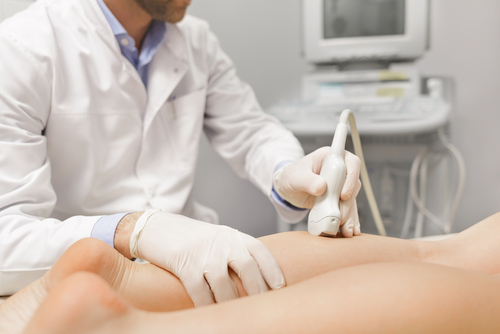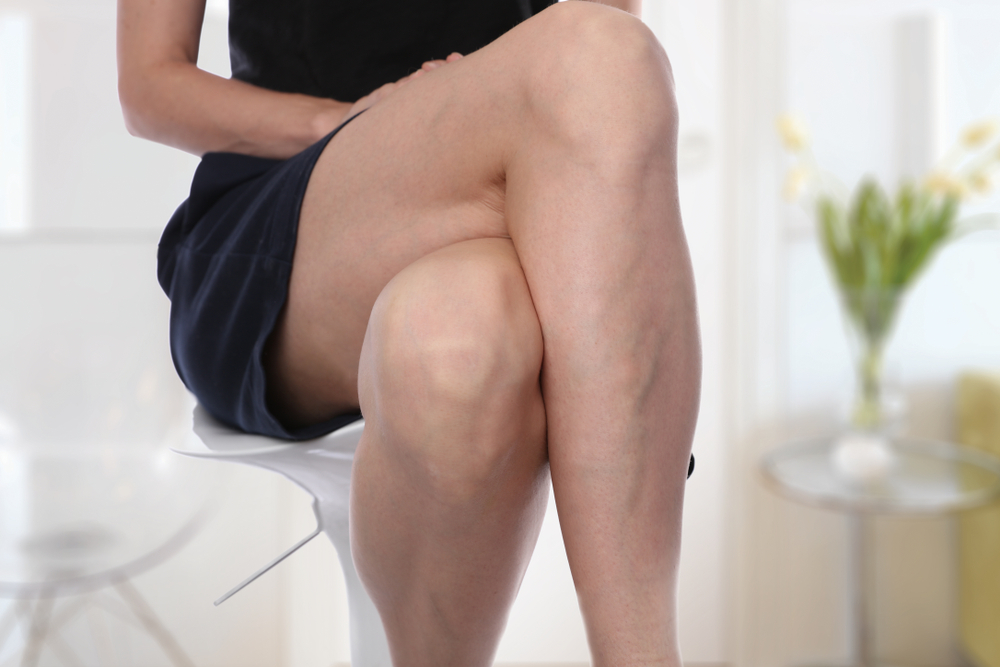Varicose veins are a visible problem in many men and women. Generally, they are only a cosmetic issue. Although in some cases, varicose veins are clues to a deeper problem. These damaged veins can appear for a myriad of harmless reasons, but they can also be telling of a more severe condition. Learn more about the underlying health concerns your veins could represent.
What Are Varicose Veins
The twisted, purple, enlarged veins just below the skin’s surface are a condition called varicose veins. These veins are a result of damaged vein walls and valves. When vein walls are weak, the vein can become varicose and bloated with trapped blood.
Generally, this blood would make its way out of the vein and back to the heart. Faulty valves play a role as well. Vein valves that are damaged will allow blood to flow in the wrong direction. The blood will pool and have a hard time making its way out of the vein.
Varicose vein severity ranges from being a cosmetic issue to becoming a severe health concern. Getting regular screenings if you see varicose veins on your body is a must. If varicose veins are a deeper problem, you need to know.
Who Gets Varicose Veins
Men and women alike can get varicose veins. An estimated 20% of adults will develop varicose veins. (1) Unfortunately for women, though, they appear more frequently.
This statistic further breaks down to 17% of men and 33% of women. Of this, more women seek medical consultation about their vein health. Women may seek medical advice due to cosmetic concerns over medical ones.
Certain factors will increase the chances of developing varicose veins:
- Pregnancy
- Standing or sitting for long periods
- Advanced age
- Genetics
- Excess body weight
- Vein diseases
- Menopause
- Hormone replacement therapy
While an infrequent occurrence, it is possible for children to get varicose veins. If your child has varicose veins, we recommend a screening ultrasound. In children, this is a condition that is likely related to an underlying condition. Degenerative vascular diseases or congenital disorders, like Klippel-Trenaunay syndrome, could be to blame.
Vascular Health Problems Related to Varicose Veins
For many, disliking the appearance of their varicose veins is the only complication they experience. Most of the time, visible veins aren’t representative of a vascular health concern. It is still essential to get screened regularly to verify no significant health issues are forming. The presence of varicose veins could be a clue to deeper health issues.
Venous Diseases Related to Varicose Veins:
Swelling and Pain
While this is not life-threatening, swelling and pain from bulging veins are not enjoyable to live through. As pressure builds up from inefficient blood flow, fluids can leak into the surrounding tissue. Swelling occurs, and this tightness causes vein pain in the legs. In the worst cases, clear or yellow fluid will leak from the skin. Over time the skin can become stiff or discolored.
Skin Ulcers
When skin is swollen from varicose veins leaking, it can become hardened with time. Nutrients and oxygen aren’t able to flow to these tissues easily or at all. Open sores can occur from the poor blood flow, and without these critical nutrients reaching the area, the wounds heal slowly or not at all.
Blood Clots
Blood clots, also known as thrombophlebitis, is a clump of blood that no longer has a liquid texture. This blood has begun to take on a gel or solid-state inside of a vein. A venous thromboembolism (VTE) can dissolve on its own but, in some cases, become life-threatening. The CDC estimates 60,000 to 100,000 people in the United States die each year from blood clots. Blood clots in veins can lead to severe complications like pulmonary embolism, deep vein thrombosis, heart attack, and stroke.
Deep Vein Thrombosis
DVT, or deep vein thrombosis, are blood clots that form in veins deep within the body. These types of clots form in the legs generally but can develop in other areas as well. DVT symptoms include swelling, cramping, severe pain, warm patches of skin, and skin discoloration. Deep vein thrombosis clots can move and block arteries, which is life-threatening. If you have DVT symptoms, see a healthcare provider right away.
Pulmonary Embolism
When a blood clot moves to the lungs, it becomes a critical medical issue called pulmonary embolism. The blood flow is restricted, and this damages the lung. With the lungs unable to deliver enough oxygen, other organs in the body can be affected. This blockage is a dangerous vascular problem, and left untreated, will result in death to one-third of people.
Screening for Vascular Issues

Using non-invasive ultrasound, a vascular surgeon can diagnose and treat vein disease. The bulging varicose veins visible from the outside may be harmless or might be the tip of a much larger issue. Having veins assessed by a doctor may rule out disease or identify the progression.
A vascular ultrasound uses high-frequency sound waves to provide doctors with an image of veins and arteries. These real-time views display the blood flow through vessels and show where there may be blockages and inefficient flow.
Tips for Better Vascular Health
The appearance of varicose veins in many cases is related to lifestyle choices. Once they have formed, they don’t disappear on their own without treatment. These tips can help stop the formation of new varicose veins and manage existing ones.
- Wear compression stockings to help blood move back to the heart
- Don’t sit or stand for long periods of time
- Elevate your legs above the heart when sitting
- Don’t cross your legs while sitting
- Lose weight if you are overweight
- Drink a lot of water and choose healthy foods
- Stay active and get exercise daily
Removal of Cosmetically Unattractive Veins
The certified vascular surgeons at The Vein Centre are skilled at screening for vein disease and determining if varicose veins are a deeper problem. If you see varicose veins on your body and are experiencing any of the above symptoms, we recommend scheduling an appointment to have your vein health assessed. Our surgeons can identify any possible vein disease and help you determine the best treatment plan for your needs.
Call our offices located in Nashville (Belle Meade) and Mt. Juliet 615.269.9007. We are happy to answer your vein health questions and look forward to meeting you for an in-person screening.
- https://www.ncbi.nlm.nih.gov/books/NBK279247/#:~:text=It%20is%20estimated%20that%20about,in%20women%20than%20in%20men.



